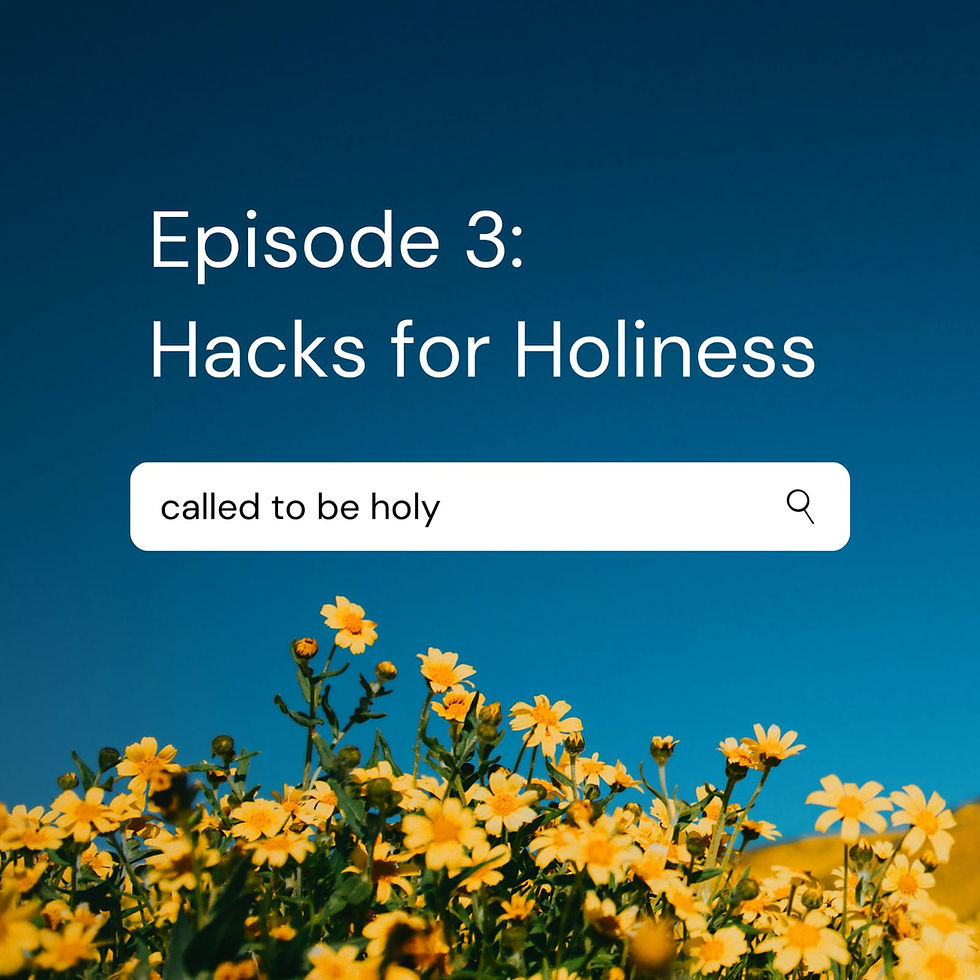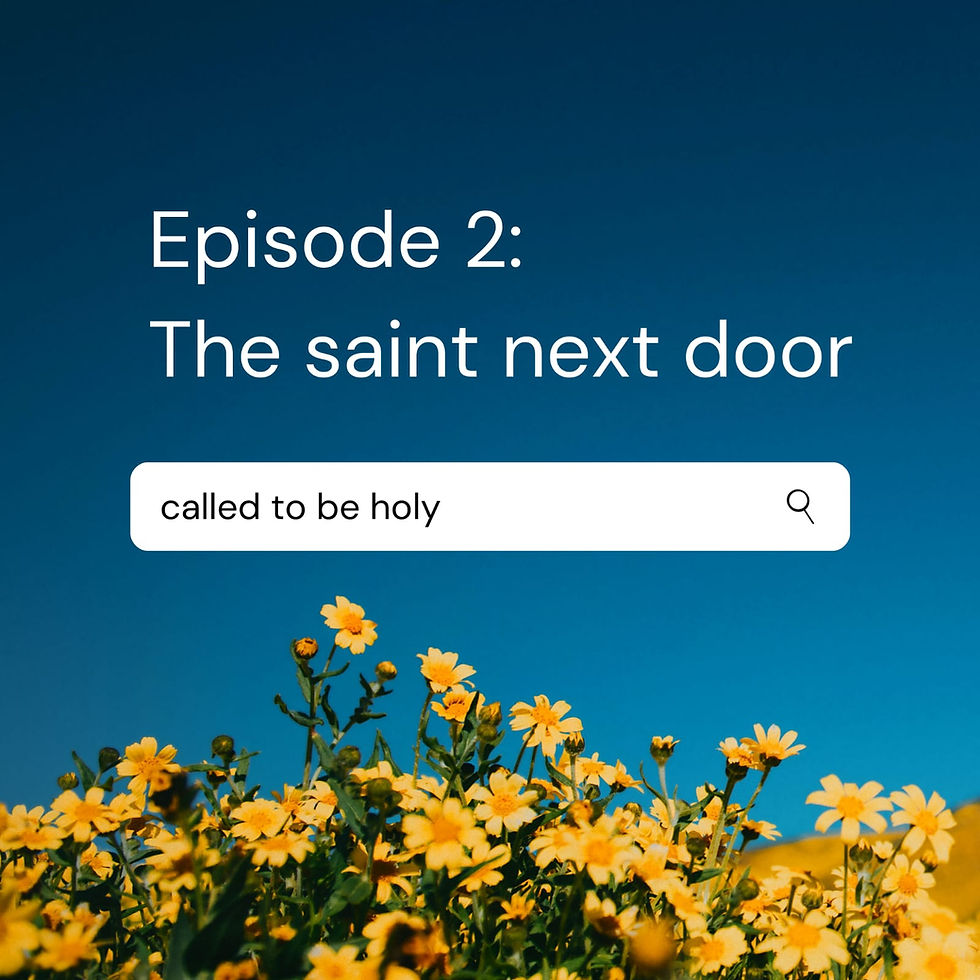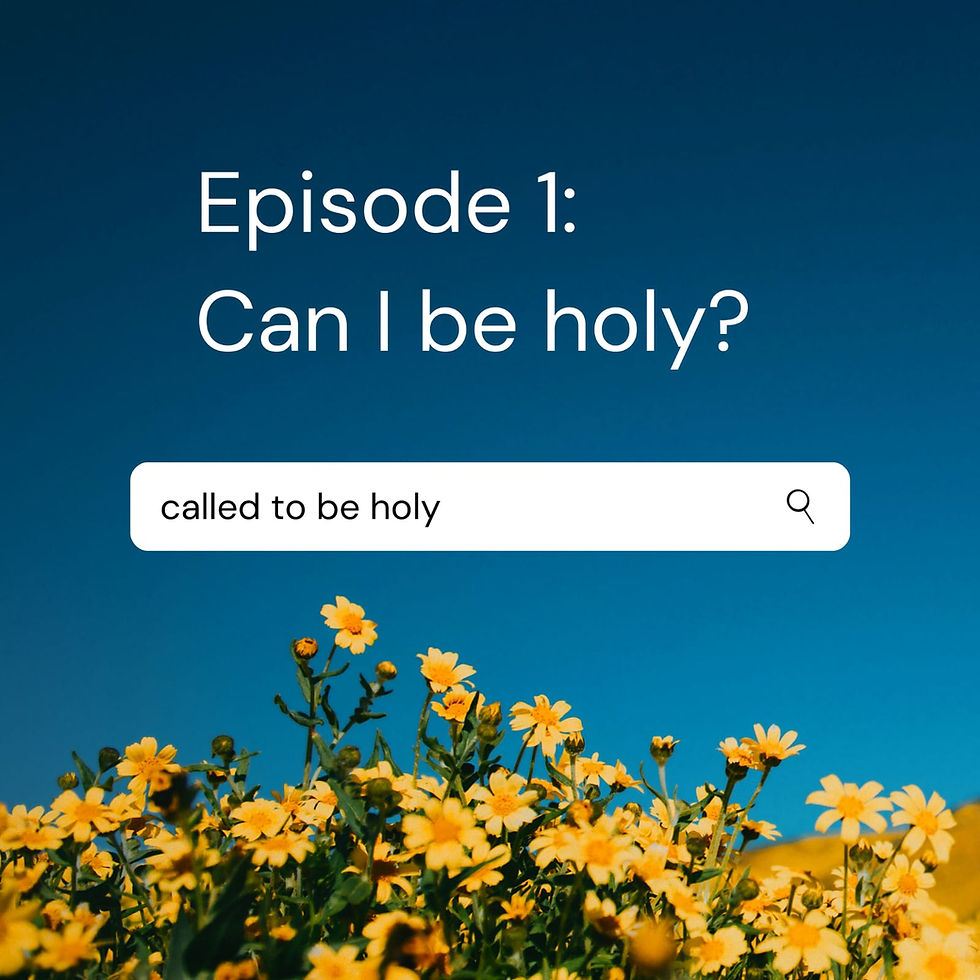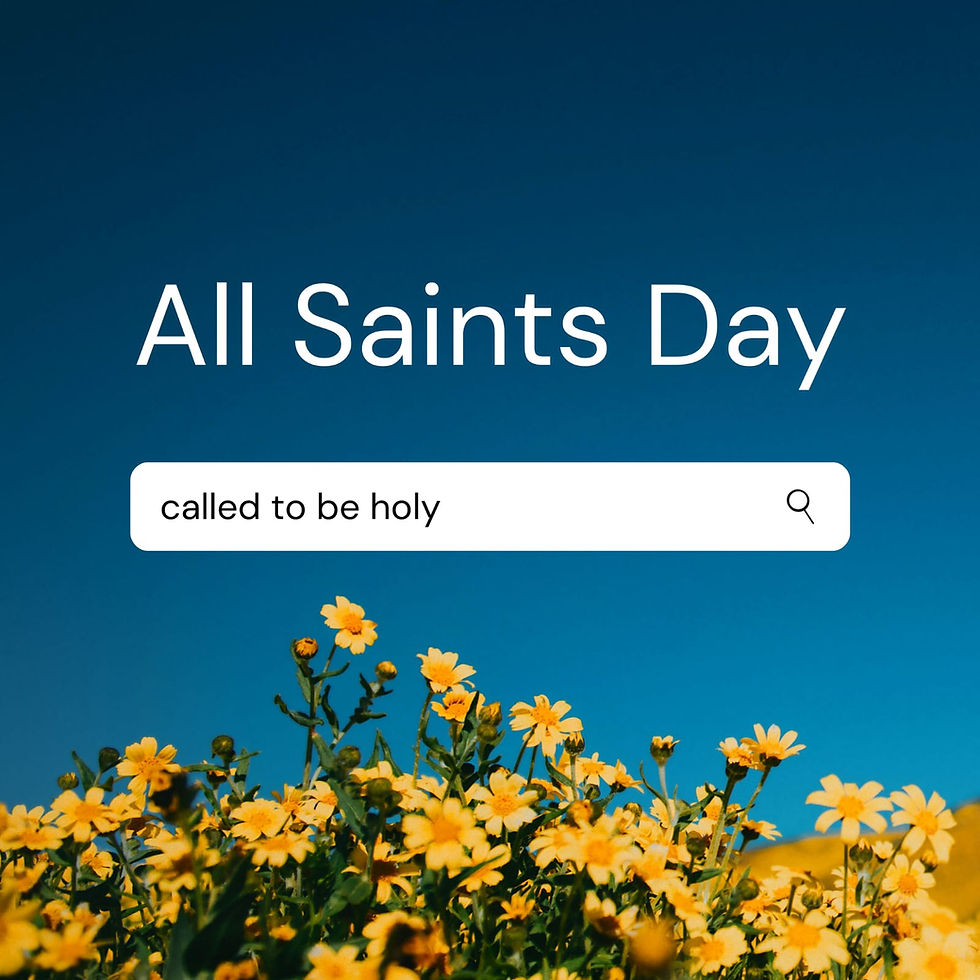Called to be Holy Ep4/Hacks for Holiness
- Oct 24, 2020
- 5 min read
Updated: Nov 18, 2020
This is part of a 4 part series on the Universal Call to Holiness.

As I near the end of this series, there is still much wisdom to be gleaned from this document, but now I pose a question of "How can I be holy"? We live in an age where we are actively researching hacks for the kitchen, office and there's even a general term called "life hacks". How about instead of hacking life, we hack holiness? Hacks are meant to make things easier - sort of like a shortcut but I do want to remind you that there is no shortcut per se, but hacks may kickstart your journey.
There can be any number of theories about what constitutes holiness, with various explanations and distinctions. Such reflection may be useful, but nothing is more enlightening than turning to Jesus’ words and seeing his way of teaching the truth. Jesus explained with great simplicity what it means to be holy when he gave us the Beatitudes (cf. Mt 5:3-12; Lk 6:20-23). The Beatitudes are like a Christian’s identity card. So if anyone asks: “What must one do to be a good Christian?”, the answer is clear. We have to do, each in our own way, what Jesus told us in the Sermon on the Mount.[66] In the Beatitudes, we find a portrait of the Master, which we are called to reflect in our daily lives.
To me, Beatitudes are indeed the IC of the Christian. An identity card identifies us as a unique individual - we have our photograph usually attached to it and a unique number that no one else shares. This is a crucial point - holiness does not look the same for everyone - we have our own unique "brand" of holiness. The same pair of jeans fits everyone differently, ala Sisterhood of the Travelling Pants. Holiness is expressed differently in the lives of different people. We only need to look to the saints - their stories of holiness span countries, cultures, millenia - yet they all have a common thread that binds them all together as the communion of saints. They have lived lives in an intentional pursuit of Christ - seeking Him, knowing Him and above all loving Him. What the Beatitudes offers to us is an espousal of the "how" when it comes to the Christian life. I want to highlight a few aspects here - the "how" of holiness is often radical and personal.
Why is holiness radical? To be radical is to be counter cultural, which increasingly has been a frequent description of Christian virtue. Sure, society is telling you to think of your own needs first, to prioritise your own needs above that of others, to view others with suspicion, to form unhealthy attachments to wealth and prestige, to pin our self worth to the number of likes we get on Instagram. Yet, the path to holiness involves a rejection of these "ideals" - it sometimes involves walking a lonely path, where the crowds start to thin out. It is much easier to go with the flow and to let society dictate who we should be. It is easier to fit ourselves neatly into the machinery of society instead of being a disruptive force. Yet many saints were disruptive in their own right. They challenged societal conventions, they questioned widely held beliefs even. Holiness requires that we dare to claim our identities as His children, that we do not shy away from difficult conversations. They require us to engage with the issues of our time - not with the desire to "revolt" or to "protest" for the sake of dissent - but to approach these issues with sensitivity. Silence and inaction truly is consent to the malicious forces that pervade wider society. Sometimes, we simply need to be the voice in the room that says "No".
That brings me to the personal side of holiness. Holiness starts with where we are. It does not mean all of us will be called to leave our jobs behind to work in the mission field. It does not mean all of us will overturn public opinion towards issues like abortion. It means we start from where we are, being the face of Christ to the people in our immediate proximity. We love the people closest to us, even though we may struggle. We acknowledge that there are multiple paths to holiness and that the work we do is also an opportunity to sanctify Him. St Josemaria Escriva emphasises that we "Work for God" and indeed, even our area of work can be an opportunity to glorify Him. It all goes back to our dispositions and intentionality. If we realise that encounters with our colleagues, the challenges that come our way in the workday are God's invitations to sanctification, we will look at the work day differently. We may dread going to work, I'm no exception, sometimes too! Yet over time, I have become increasingly aware of the fact that the place in which I spend most of my time in, may actually be an altar of sacrifice. From the workplace, the personal quality of holiness feeds into our other areas of life, particularly in our relationships with others.
In other words, amid the thicket of precepts and prescriptions, Jesus clears a way to seeing two faces, that of the Father and that of our brother. He does not give us two more formulas or two more commands. He gives us two faces, or better yet, one alone: the face of God reflected in so many other faces. For in every one of our brothers and sisters, especially the least, the most vulnerable, the defenceless and those in need, God’s very image is found. Indeed, with the scraps of this frail humanity, the Lord will shape his final work of art. For “what endures, what has value in life, what riches do not disappear? Surely these two: the Lord and our neighbour. These two riches do not disappear!
We might think that holiness involves us living in isolation, away in the mountains in Italy (maybe that's one too many travel documentaries?) Yet, we are called to love our brother and sister in Christ and to see in them, a reflection of Christ Himself. God's image lies in everyone we meet, whether we see it immediately or not. Sometimes we struggle with looking at our fellow brethen as His children - we only see the flaws, the faults, the brokenness. This often involves us engaging with the "ugly" sides of others and ourselves, but the human struggle is actually a sign of holiness, though it may not seem so at first glance! Our struggle with our base human nature of selfishness and individualism is a sign of deep spiritual work that is taking place. We are beginning to shed the coloured glasses we wear and we see the people around us just as God sees them, saints as well!
So in answer to the HOW to be holy, I invite you to examine your own desire for holiness. Let us pray for this desire, while dormant to be awakened and to burn with vigour. Let us pray for the tenacity to withstand the fires of divine Love, to remember that the flames do not consume us. Let us pray for the courage to live our faith radically and personally. Let us pray for each other, that we will encourage each other along the way to #holiness and to remember that it's not a #seeyalater, but rather a #seeyainHeaven !



Comments